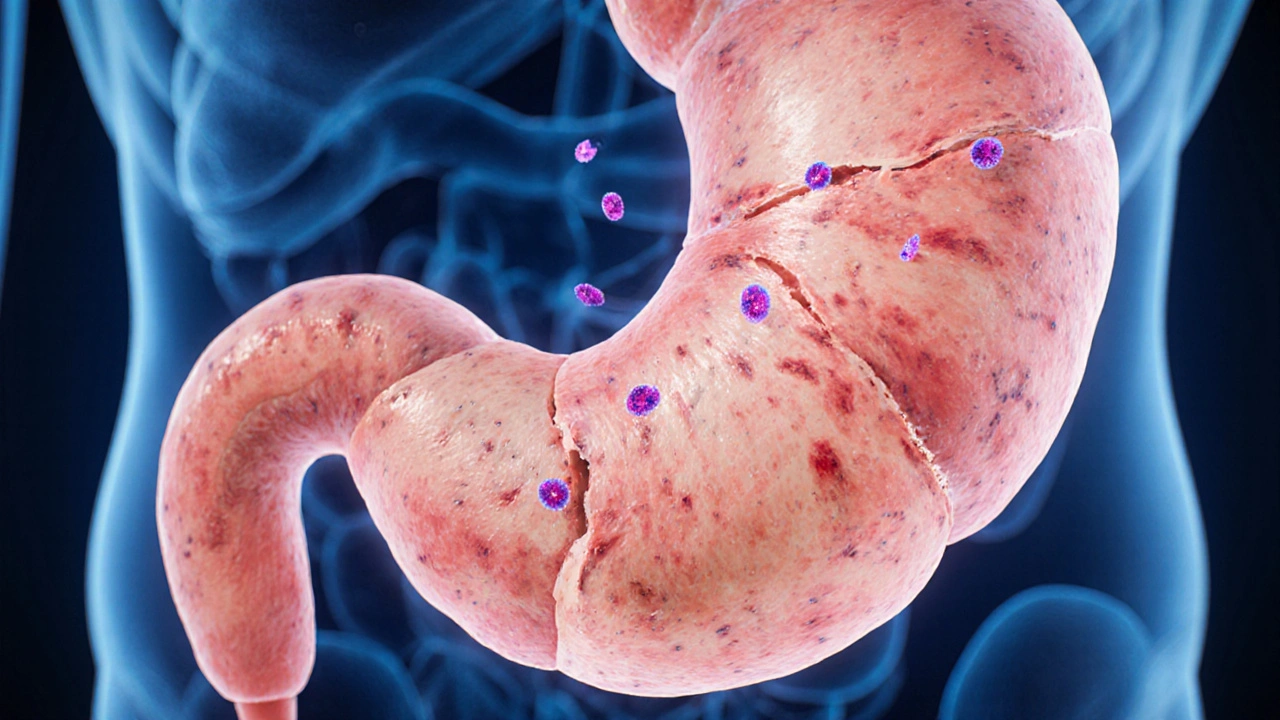
How Atrophic Gastroenteritis Affects Your Heart Health
Learn how atrophic gastroenteritis can affect heart health, the mechanisms linking gut inflammation to cardiovascular risk, and practical steps to protect both organs.
When dealing with gastrointestinal disease, any condition that affects the stomach, intestines, or related digestive organs. Also known as GI disorder, it can range from mild irritation to chronic ailments that impact nutrition and quality of life. People often wonder why a stomach issue can cause pain elsewhere or why a medication for the gut seems to affect the bladder. The answer lies in how the digestive system talks to other body parts.
One common companion of GI problems is bladder muscle spasms, involuntary contractions of the bladder wall that cause urgency or discomfort. Also called overactive bladder, these spasms share nerve pathways with the gut, so inflammation in the colon can trigger bladder irritation. Managing the gut often eases the bladder, and vice‑versa.
Closely linked is urinary tract health, the condition of kidneys, ureters, bladder and urethra. When the gut barrier is compromised, bacteria can migrate upward, raising the risk of urinary infections. A healthy diet and gut flora therefore support a clean urinary system.
Because the gut houses billions of microbes, probiotic supplements, live bacteria products designed to balance intestinal flora have become a go‑to for many GI issues. Strains like Lactobacillus and Bifidobacterium can reduce inflammation, improve digestion, and even calm bladder spasms by modulating the gut‑brain‑bladder axis.
On the flip side, antibiotic therapy, use of drugs to kill harmful bacteria can disrupt that delicate microbial balance. While antibiotics are essential for treating infections that may arise from a leaky gut, they can also trigger secondary GI symptoms such as diarrhea or candidiasis. Knowing when to use antibiotics and when to rely on probiotics is a key part of managing gastrointestinal disease.
Putting these pieces together, you can see three clear connections: gastrointestinal disease encompasses disorders of the stomach and intestines; management often involves probiotic supplements; and antibiotic therapy influences the gut microbiome, which in turn affects both GI and urinary health. Understanding these links helps you choose treatments that work together instead of fighting each other.
The articles we’ve gathered cover natural ways to soothe bladder spasms, safe online options for common prescriptions, and detailed drug comparisons that matter for heart, brain and gut health. Whether you’re looking for a cheap generic for a chronic condition or a side‑by‑side table that shows how one medication stacks up against another, the list below gives you practical info you can act on right away.
Take a look, pick the topics that match your needs, and use the guidance to make smarter health decisions today.

Learn how atrophic gastroenteritis can affect heart health, the mechanisms linking gut inflammation to cardiovascular risk, and practical steps to protect both organs.